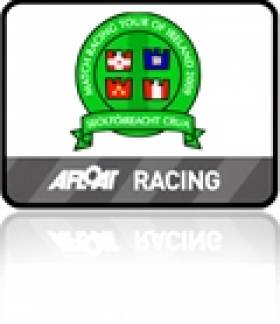Displaying items by tag: Scarlino
Howth Yacht Club's Flanigan Takes Scarlino Match Race Victory With Team GBR
#matchrace – London Olympic sailor Scott Flanigan of Howth Yacht Club was sailing with the Great British Match Racing Team again at the weekend and won the Scarlino Grade 3 match race event, beating world number 17 Tomislav Basic in the final race to take the event.
The win will see the team boosted into the Top 20 in the world rankings for the first time.
Flanigan is sailing with Mark Lees, Matt Haslam and James Hemmingway for the remainder of the season as they target a place on the World Match racing tour for the 2016/17 season.
The event took place in Club Nautico Scarlino, Italy and marked the start of the European match racing circuit. There was 9 teams from 5 nations competing.
A full round robin was completed in extremely wet and variable conditions over two days. Mark Lees' team won 7 of their 8 races, only dropping a race when their spinnaker halyard snapped. The final race against top seed Tomislav Basic from Croatia was the decider, with the GBR match racing team leaving their best sailing till last.
Cork's Philip Bendon was also competing in Antibes, France in another Grade 3 where he finished fourth.
Both teams will be vying for European places at the Nations Cup qualifier in Howth in early May, with the Grand Finals being held in Russia in July.
Team positions:
Mark Lees : Helm
Scott Flanigan: Mainsheet trimmer & tactician
Matt Haslam: Trimmer
James Hemmingway: Bowman
























































